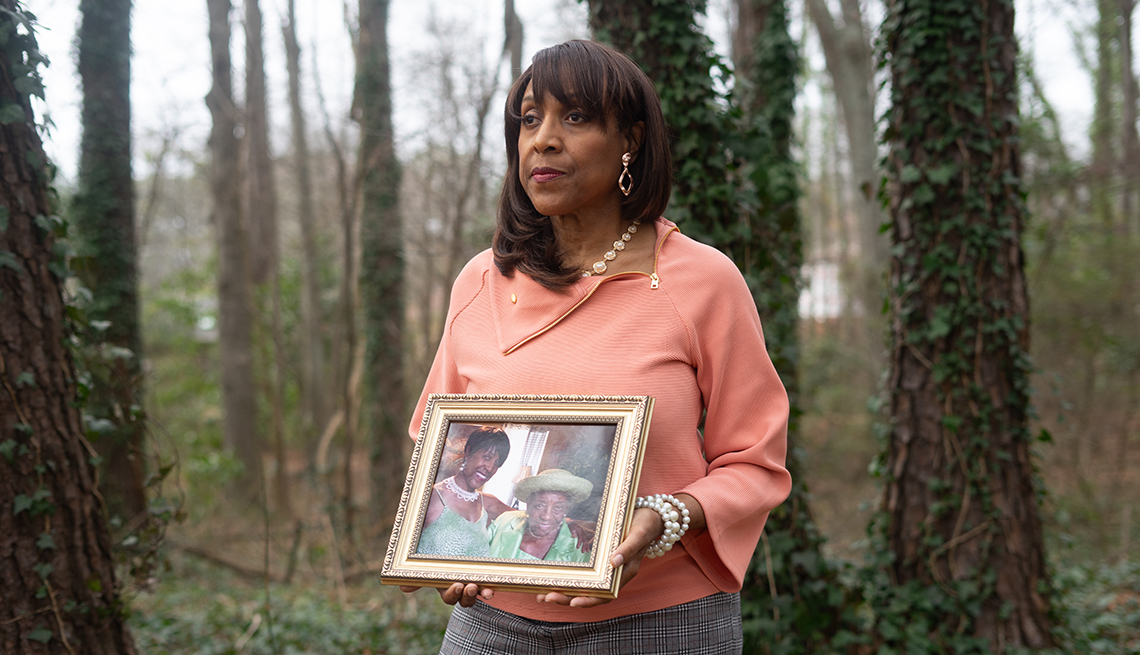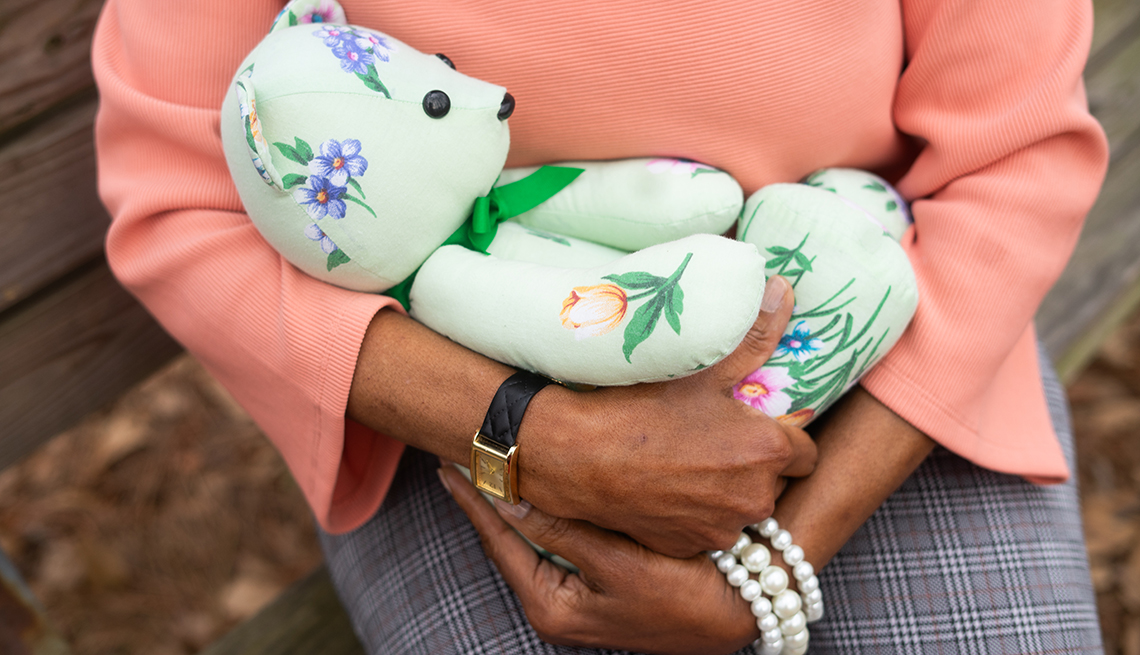AARP Hearing Center

Like most family caregivers, Donna Olivia Maye-Barnes learned on the job as she began helping her mother, who had Alzheimer’s disease, with everything from eating to going to the bathroom.
After her mother’s diagnosis in 2016, Maye-Barnes, a retired schoolteacher from Ellenwood, south of Atlanta, started an online support group and got involved with the Rosalynn Carter Institute for Caregivers. It was founded in 1987 by the former first lady, who died last fall at age 96.
“It was just a godsend,” Maye-Barnes, 67, says of the caregiver community she connected with through the institute. “When you’re traveling this journey on a daily basis ... it is so important for caregivers to know that they’re not alone.”
The Americus-based nonprofit provides in-person and virtual training for family caregivers. The staff also works with employers and other partners, including AARP Georgia, to focus on the physical, mental and financial well-being of caregivers.
As a young girl, Rosalynn Smith helped care for her father, who had cancer, and then helped her mother raise her siblings after he died.
Decades later—after marrying Jimmy Carter and her time in the White House—that experience prompted her to establish the institute to support family caregivers through resources, research and advocacy—including a push for a more concerted focus on caregiving from Washington. It was initially part of Georgia Southwestern State University but today operates as an independent nonprofit.
Debra Tyler Horton, AARP Georgia’s state director, says AARP will continue to work with the institute to ensure the nation’s 38 million caregivers have the resources they need.
“We will forever be grateful for the work of the former first lady,” she says.
The Assignment Carter Left
Carter’s death has brought renewed attention to the work of the institute—and to caregiving, says Jennifer Olsen, its CEO.
“This was one of her passions,” says Olsen, an epidemiologist.
Among the institute’s goals since its founding: elevating the conversation around caregiving.
“We see so many more discussions ... about how important caregivers are,” Olsen says. That will only increase, she hopes, as the population ages and people with chronic conditions live longer.
One of Carter’s goals had been to create a federal office to champion the health and needs of caregivers, and the institute plans to continue that push.
“It’s one of the assignments that Mrs. Carter left for us,” Olsen says.
Maye-Barnes has her own caregiving assignment, in honor of her mother, who died in October 2023 at 95—just a month before Carter’s death. She will continue to work with the institute’s 4Kinds Network, a community of current and former caregivers who support each other and advocate for change.

Institute’s CEO: Caregivers at Risk From Stress
Having an epidemiologist lead the Rosalynn Carter Institute for Caregivers makes all kinds of sense. That’s what Jennifer Olsen, 43, told Rosalynn and Jimmy Carter when she interviewed to be the institute’s CEO in 2018.
“In epidemiology, you’re always trying to figure out who gets sick or is ill and why,” says Olsen. “The case I made to them ... is that caregivers are a population at risk.”
Caregiving can involve everything from making meals to attending medical appointments—demands that can put caregivers at risk for physical and mental health issues. Thirty-
six percent of U.S. caregivers characterize their situation as highly stressful, according to a 2020 report from AARP and the National Alliance for Caregiving.
“Today’s caregivers are going to be tomorrow’s patients if we don’t focus more on this group,” Olsen says.
Before moving to Plains, to a house just a few doors down from the Carters’ home, Olsen worked in the public and private sector on initiatives related to ending pandemics and increasing awareness and information sharing during public health emergencies. Under her leadership, the institute is partnering with the Federal Emergency Management Agency to consider the needs of caregivers during natural disasters.
Currently, she says, caregivers often fear there will not be a safe place for their care recipient to shelter during a hurricane or wildfire, especially if that person suffers from cognitive decline or mobility problems.
“So often, caregivers will end up staying at home, even if it’s a risky situation from a weather perspective, because there’s so much uncertainty about what’s going to be available,” Olsen says.
Ann Hardie spent a decade covering aging issues for The Atlanta Journal-Constitution. She has written for the Bulletin for 15 years.































































